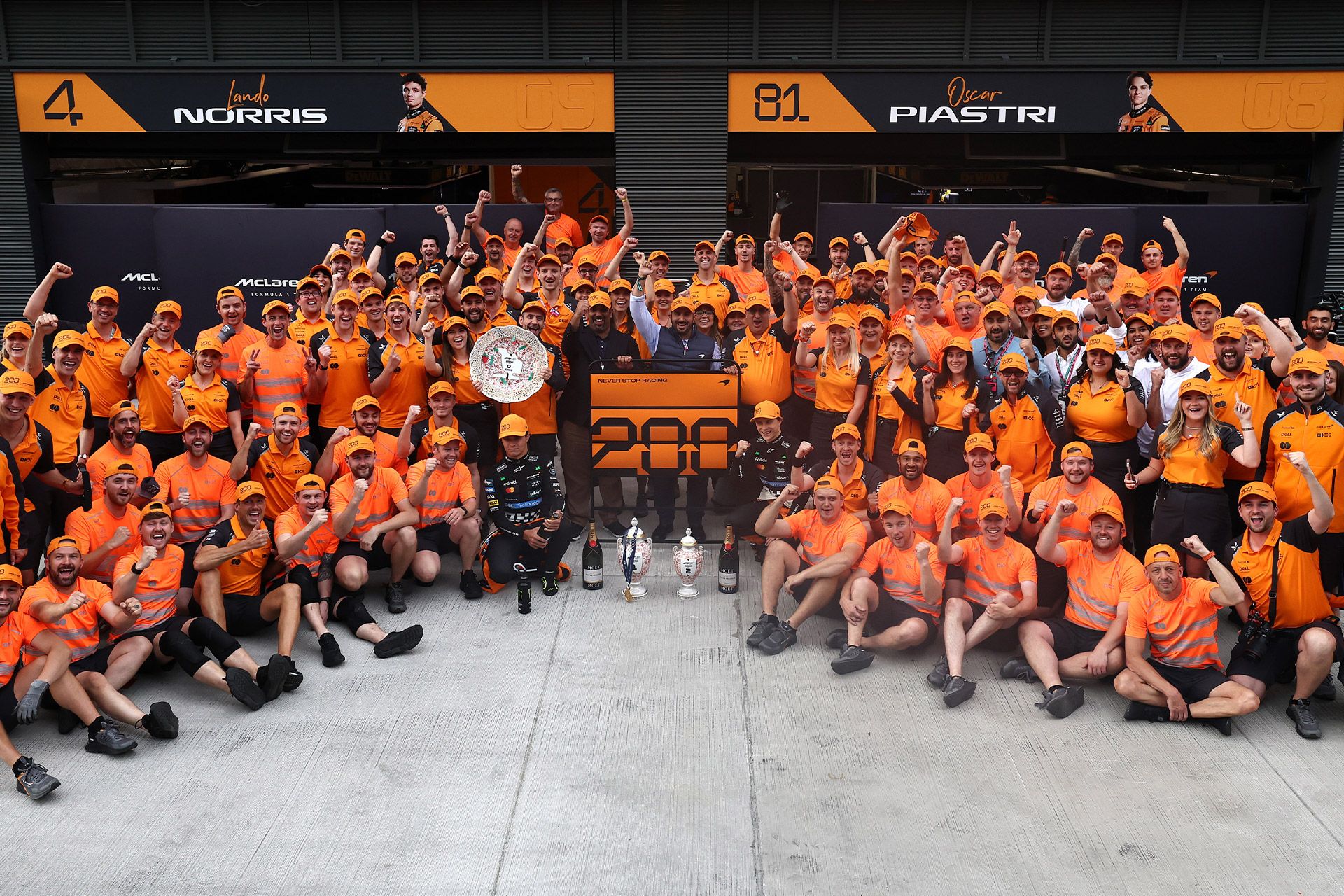
Beating jetlag, scheduling naps, and switching off: How do Formula 1 drivers sleep?
The secret to success is in a good night’s sleep – why F1 drivers prioritise rest and what helps them to achieve it
Read time: 12 minutes
Everyone reading this has almost certainly had one of those mornings. It’s still dark outside, it’s cold, and you’ve slept poorly, making it exceptionally difficult to get out of bed for work – you manage it, of course, but you don’t feel quite right through the day. If you’re a Formula 1 driver, you can’t have those days.
In modern sport, every element of an athlete’s life is meticulously managed and measured. Sleep is a key component of that. It is critical for performance, especially in F1, where jet lag is a consistent thorn in the side of every team. Navigating international travel while maintaining an effective sleeping pattern is a complex puzzle that all elite sports must attempt to solve, but few, if any, face it as frequently as teams in Formula 1, with 24 Grands Prix taking place across five continents.
But as anyone who’s ever struggled to get to sleep will testify, simply sending a driver off at the end of the day and saying, ‘Sleep well, don’t let the bed bugs bite,’ isn’t an effective strategy. So, how do Formula 1 drivers ensure that they get a good night’s sleep? We spoke to Oscar to find out what strategies he and the team use to make sure they’re sleeping sufficiently and waking up feeling well rested.

The importance of sleep
The negative impact of regular poor sleep is well-documented, while research shows that even one night of poor slumber, defined as less than six hours, is enough to disrupt your mental and physical well-being.
Sleeping poorly will impact every aspect of a driver’s day, from reaction time and decision-making in the car to how they process information and communicate with the team. While drivers will only spend a few hours a day out on track, a significant block of their schedule will be filled with technical debriefs and team meetings that are crucial for performance. These require high levels of concentration, considered judgement, and the ability to listen and process data - all of which is easier when you’re well rested.
“Sleep is a massively important part of our preparation for a race weekend and for the race weekend itself, so that we can drive at our full potential,” says Oscar. “If a driver were to get a bad night’s sleep, then their concentration levels throughout the day would be impacted. They wouldn’t be as focused, and their mood wouldn’t be as good.
“When you’re out on track for a short amount of time, adrenaline might take over a bit, but during the course of a long race, when a driver needs to maintain concentration, we know that getting a good night's sleep is critical for that, which is why we place so much importance on making sure we sleep well.”
There’s also the confidence factor. Similarly to planning for a job interview or revising before an exam: do enough in the lead-up to the event and you’ll go in knowing you’ve prepared as best you can.
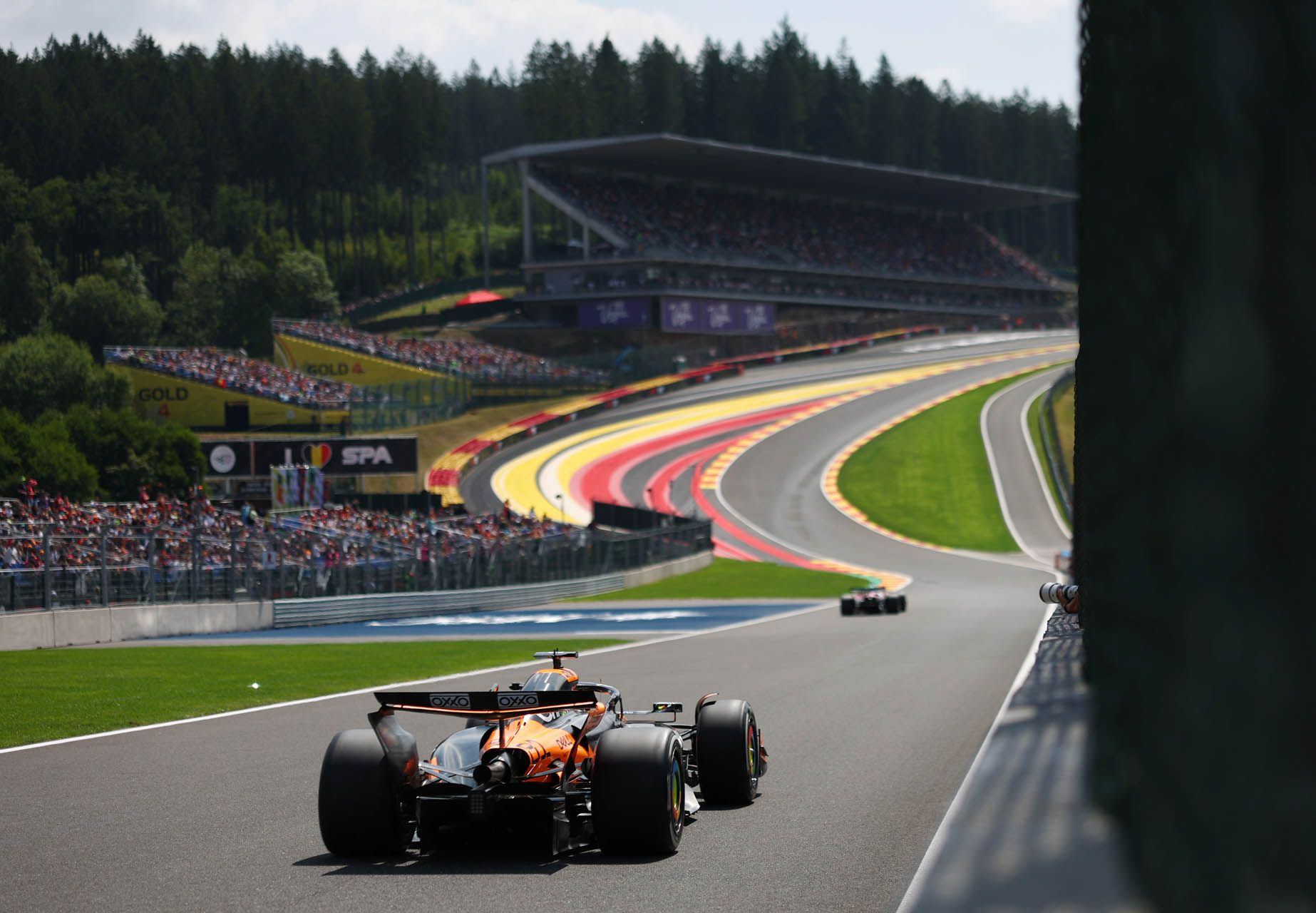
“There is definitely a physiological benefit, knowing you’re feeling fresh and you’ve done all of the right things for your body,” Oscar says. “You hope that your body reciprocates that and performs well.”
In team-based sports, where athletes are called upon to deliver during a few select key moments, the expectation is that they’ll preserve energy during the quieter periods but be able to perform at the flick of a switch.
Whereas driving an F1 car requires 100% concentration from start to finish. That’s much easier to do when you’re refreshed and alert after a good night’s sleep. In a sport where the margins are razor-thin and every millisecond counts, fine margins, like an effective recovery plan, can have significant consequences on the outcome of a weekend.
“If a driver was tired, then of course it would make a difference to their lap time in a race,” Oscar says. “Realistically, a driver just wouldn’t be as quick if they hadn’t slept as long. It is so important that we’re able to concentrate for the whole race, and your sleep definitely influences that. There are a lot of areas it impacts, which is why we place so much importance on sleeping well.”
Sleep is crucial for F1 race weekends
Battling the clock
For most of us, the key to a good sleep schedule would centre around a consistent bedtime. Again, in F1, it just isn’t that simple. When travelling from country to country, your circadian rhythm – our body’s natural 24-hour clock, which tells us when to sleep and when to wake up – is knocked out of whack.
When travelling across time zones, our natural body clock will initially remain on the old time and takes a while to adjust, even though the external cycle of day to night has changed. This makes sleeping harder and impacts how we feel and function during the day.
Having a personalised jetlag plan that they can stick to is a simple but effective solution. There’s no cure for jet lag, and contrary to popular opinion, it doesn’t get easier the more experience you have, but each driver will know what works for them and will use this to minimise the effects. This usually centres around a gradual adjustment in the lead-up to the race, changing the clock by a few hours each day until you hit the right time zone.
“Trying to mimic the time zone you are in, when you’re not actually there yet, is one of the hardest skills to master, but it’s an important one for us to have,” Oscar says. “One of the most challenging aspects of being an F1 driver is all of the flying we do and the changing time schedules that come with that. Trying to get used to a different time zone is always difficult, and I try to prepare for it as much as I can.
“I will use the flight on the way out to try to adjust to the time zone. Or if it’s a really big shift, such as Australia, then you will start shifting before the flight. We’ll also tend to fly out to the races where there is a more severe time zone, earlier than normal, which gives us longer to adjust.”

Sticking to the plan
One of the simplest ways to ensure a driver gets an appropriate night’s rest is to physically plot it into their schedules, using scientifically proven data to determine when and how long this should be.
Based on expert advice, an F1 driver’s schedule is mapped out for them by the minute, including when to eat, take a nap, relax, go to sleep, and wake up. All of these activities can impact performance if poorly timed, and this strict scheduling removes the risk, while also eliminating the requirement for a driver to think about making these plans themselves, leaving them with more time and brain power to make other decisions.
“It's very difficult to go from an activity - whether that’s a meeting, a marketing activity, or actually driving – and straight to sleep,” says Oscar. “Having enough time to wind down, and knowing what you need to wind down, is really important. As is giving yourself a long enough block to be able to sleep sufficiently.”

Closer to the team
Switching off
Famously, Oscar loves sleep. He’s highlighted it among his favourite hobbies and is one of the lucky few who find it relatively easy to sleep wherever he is. “In a hotel, on a plane, in a car - not a race car, obviously as a passenger in a road car - I can fall asleep pretty easily, so that’s a gift of mine,” he says, while attempting not to make us envious.
“I'm also not a coffee drinker,” he adds. “I don't have any caffeine, which I think helps. I don’t have to think about stopping that at a certain time. It usually bites me in the mornings, but I think it’s useful overall.”
Of course, he doesn’t always fall asleep straight away. After a session, leftover adrenaline will still be coursing through a driver’s body for several hours, so it’s key that their schedule includes a period in which they can wind down, away from the outside world.
This will typically include showering and watching a programme on a streaming service or videos on YouTube. Oscar’s schedule will also include a buffer between when he wants to fall asleep and when he begins trying, acting as a safety net.
“If you’re experiencing a night where it is more difficult to sleep, it’s usually when your brain is busy and doesn’t want to switch off yet,” he says. “Having some exercises you can do to try and quiet your brain is useful and often works for me. There’s no one-size-fits-all. It’s different for everyone. For me, it’s important to catch your brain when it’s working too hard in the evening and find a way to stop it.
“The other important thing is allowing myself enough of a gap so that I’m not stressed if I can’t fall asleep quickly. If I want to be asleep by 23:00, then I’ll be in bed by 22:00. That way, you’re not stressed, looking at the clock and counting the hours.”
So next time you’re chasing an early night, take Oscar’s advice into account and see if it helps.
Recent articles
All articles
Exclusive interview: Zak, Andrea, Lando, and Oscar
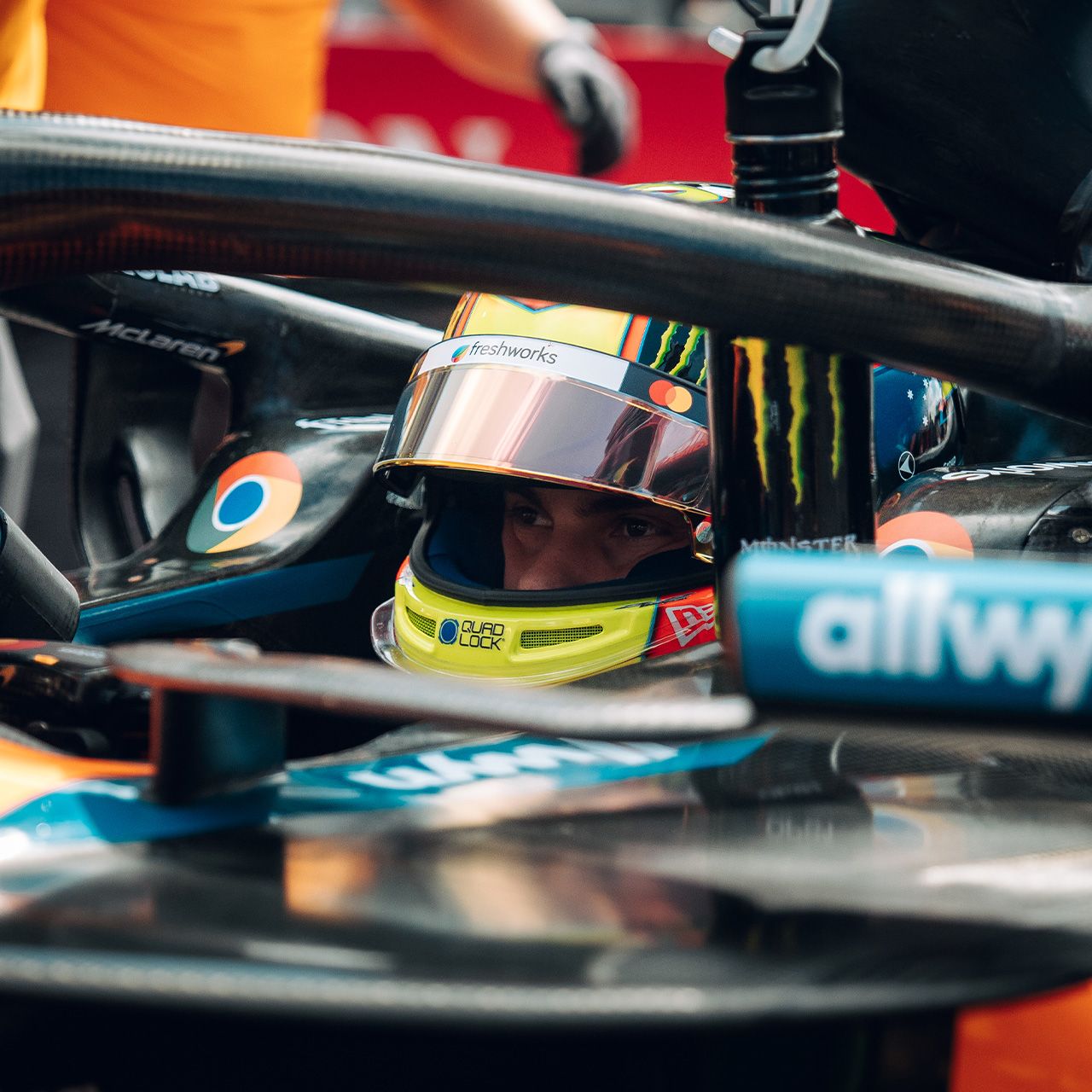
Oscar: "The pressure is only going to increase from here"

Oscar Piastri interview: Striving for perfection, battling against the best and his 2025 title chances
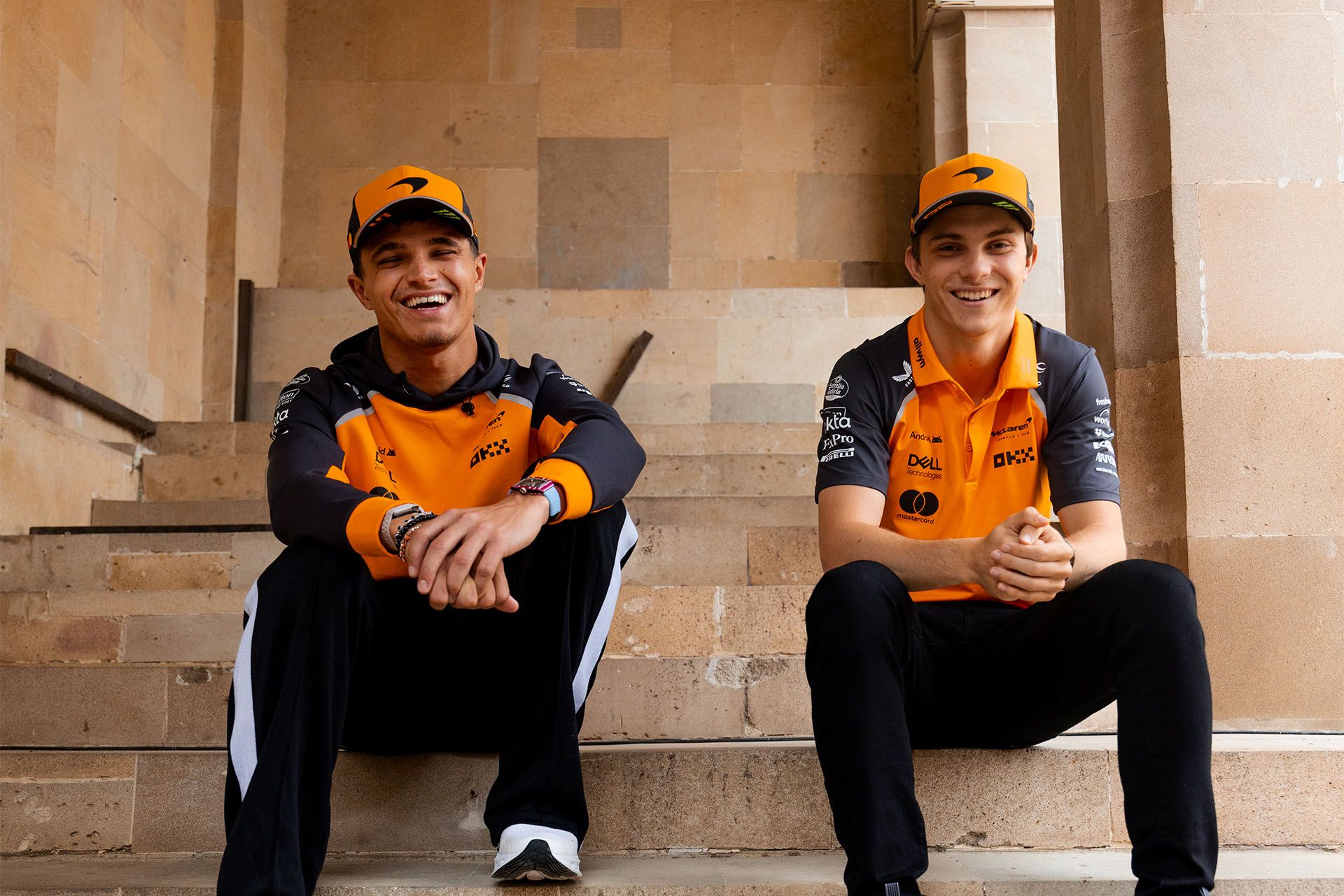
Eight more F1 questions you’ve been afraid to ask

CEO Zak Brown on winning back-to-back titles

Celebrating title number 10 in Singapore
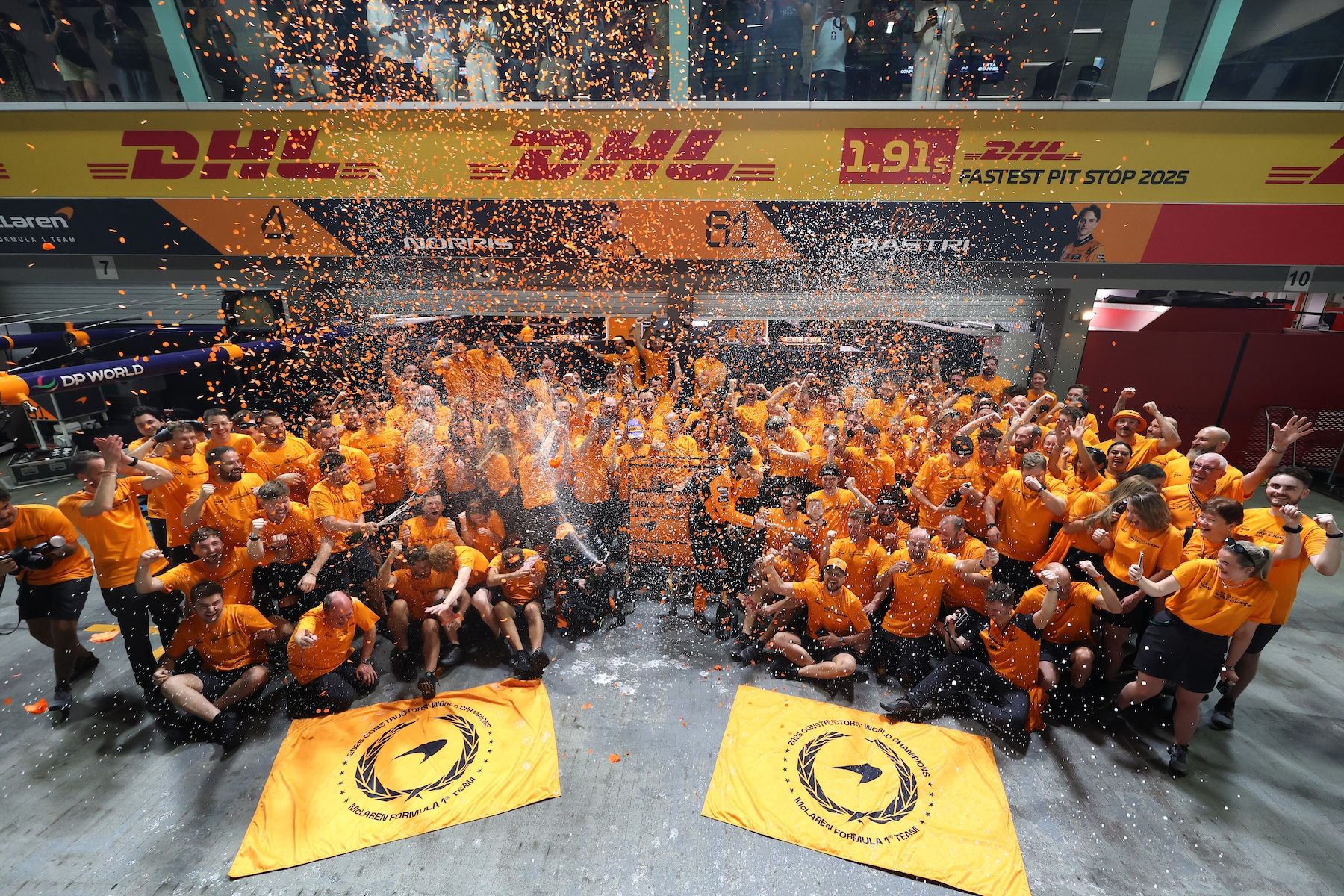
How McLaren won the 2025 F1 Constructors’ World Championship
